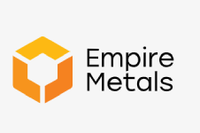Copper prices rose to record territory Tuesday, as a weak greenback boosted international investor’s demand.
By Leia Michele Toovey- Exclusive to Copper Investing News
Copper prices rose to record territory Tuesday, as a weak greenback boosted international investor’s demand. The dollar’s drop is a result of Federal Reserve Chairman Ben Bernanke’s weekend statement to CBS that further monetary stimulus may be needed to prevent the world’s largest economy from slipping back into a recession.On The COMEX, copper’s most active contract, for March delivery, climbed 2.9 percent, or 11.75 cents, hitting $4.1255 a pound. This above the red metal’s highest settlement price of $4.0635 set July 2, 2008, but below its record intraday high of $4.2605 set May 5, 2008. Benchmark copper on the London Metal Exchange hit a record high at $9,044 a tonne.
Copper was joined by gold on Tuesday as both metals broke price records. These two metals generally move in opposition to each other, with gold considered a “safe haven” that investors pour their funds into when the economic picture looks shaky. Copper, on the other hand, holds the moniker of an “economic bellwether.” When the economy is strong, generally so are copper prices. Copper soared 140 percent in 2009, and looks like it will finish this year with a 22 percent price gain. The metal’s rally has been fueled my Chinese buying, an improving global economy, and tightening stockpiles.
Copper supplies will fall short of demand for at least the next two years, according to Trafigura Beheer BV, which considers itself the world’s second- largest trader of industrial metals. In an interview, Simon Collins, head of refined metals at Trafigura, stated that copper will move from a balanced market this year to shortages of 800,000 tonnes in 2011 and 2012. Prices will peak over $10,000 a metric tonne in the second quarter next year.
Copper market fundamentals will be further complicated by the newly announced exchanged-traded funds. These ETF’s will be backed by real stockpiles of the metal, which could potentially exacerbate the projected supply shortages. While it is anyone’s guess how much the ETF’s will affect copper prices, there is consensus among analysts that they will increase prices. ETF Securities, JPMorgan Chase & Co. and BlackRock Inc. have all announced plans to start ETF’s.
This morning TD Newcrest hiked its copper forecasts. The Canadian capital market service firm predicts that copper will average $4.10 per pound in 2011 on the COMEX, up from its previous forecast of $3.50. The firm also raised its forecast for 2012 to $4.25 from $3.75. TD analysts believe there is potential for a super spike in the price of copper, a period in which “scarcity pricing” takes hold. This could mean a price exceeding $5 a pound ($13,200 per tonne) for the short run.
According to Codelco’s Chief Executive Officer Diego Hernandez, copper prices will average near $4 a pound next year. Mr. Hernandez sees a deficit of about half a million metric tonnes of copper as supplies will lag behind a predicted growth in demand of 4-5 percent. Codelco will spend $15 billion in the next five years to ramp up production from its aging mines based in Chile, Hernandez said.
Chilean state copper commission Cochilco says Chile’s copper production will likely rise 3.2 percent year-over-year in 2010 to 5.56 million metric tonnes. Cochilco expects rising copper production this year to come from recovering output at Antofagasta PLC’s Los Pelambres mine and from Codelco’s Norte division. Expansions at Los Pelambres and at Teck Resources Ltd.’s (TSX: TCK.B) Carmen de Andacollo mine, and a ramp up to capacity at BHP Billiton Ltd.’s (NYSE: BHP) Spence copper mine, will also boost Chile’s copper output. Chile is the world’s largest copper producer, accounting for nearly 35 percent of global output.
The strike at Collahuasi Copper is officially over. Unionized workers at Anglo American Plc. and Xstrata Plc.’s (LON:XTA) joint venture Collahuasi are set to return to work after voting to end a month-long strike at the world’s third-largest copper mine. The strike ended before any major supply disruptions, and Collahuasi was able to meet all its copper contracts.






